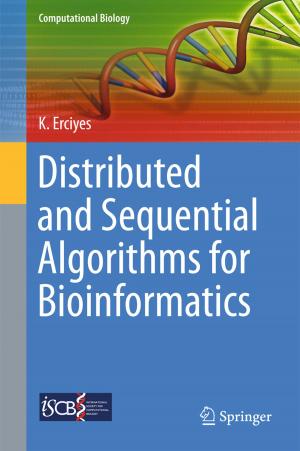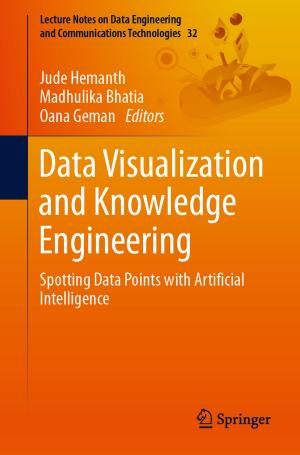Molecular Computing
Towards a Novel Computing Architecture for Complex Problem Solving
Nonfiction, Computers, Advanced Computing, Artificial Intelligence, General Computing| Author: | Weng-Long Chang, Athanasios V. Vasilakos | ISBN: | 9783319051222 |
| Publisher: | Springer International Publishing | Publication: | July 8, 2014 |
| Imprint: | Springer | Language: | English |
| Author: | Weng-Long Chang, Athanasios V. Vasilakos |
| ISBN: | 9783319051222 |
| Publisher: | Springer International Publishing |
| Publication: | July 8, 2014 |
| Imprint: | Springer |
| Language: | English |
This textbook introduces a concise approach to the design of molecular algorithms for students or researchers who are interested in dealing with complex problems. Through numerous examples and exercises, you will understand the main difference of molecular circuits and traditional digital circuits to manipulate the same problem and you will also learn how to design a molecular algorithm of solving any a problem from start to finish. The book starts with an introduction to computational aspects of digital computers and molecular computing, data representation of molecular computing, molecular operations of molecular computing and number representation of molecular computing and provides many molecular algorithm to construct the parity generator and the parity checker of error-detection codes on digital communication, to encode integers of different formats, single precision and double precision of floating-point numbers, to implement addition and subtraction of unsigned integers, to construct logic operations including NOT, OR, AND, NOR, NAND, Exclusive-OR (XOR) and Exclusive-NOR (XNOR), to implement comparators, shifters, increase, decrease, and to complete two specific operations that are to find the maximum number of “1” and to find the minimum number of “1”. The book is also a useful reference source to people new for the field of molecular computing.
This textbook introduces a concise approach to the design of molecular algorithms for students or researchers who are interested in dealing with complex problems. Through numerous examples and exercises, you will understand the main difference of molecular circuits and traditional digital circuits to manipulate the same problem and you will also learn how to design a molecular algorithm of solving any a problem from start to finish. The book starts with an introduction to computational aspects of digital computers and molecular computing, data representation of molecular computing, molecular operations of molecular computing and number representation of molecular computing and provides many molecular algorithm to construct the parity generator and the parity checker of error-detection codes on digital communication, to encode integers of different formats, single precision and double precision of floating-point numbers, to implement addition and subtraction of unsigned integers, to construct logic operations including NOT, OR, AND, NOR, NAND, Exclusive-OR (XOR) and Exclusive-NOR (XNOR), to implement comparators, shifters, increase, decrease, and to complete two specific operations that are to find the maximum number of “1” and to find the minimum number of “1”. The book is also a useful reference source to people new for the field of molecular computing.















